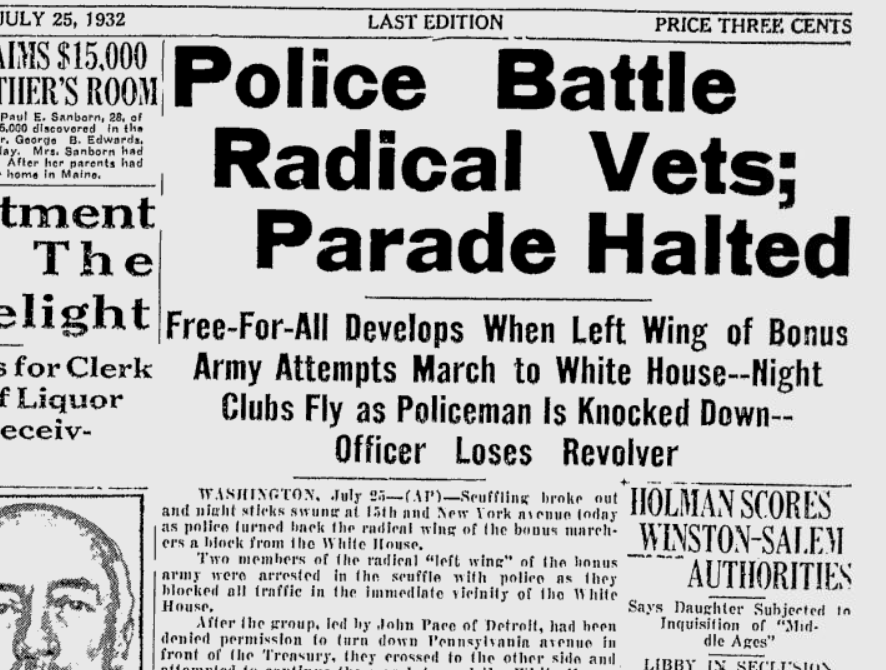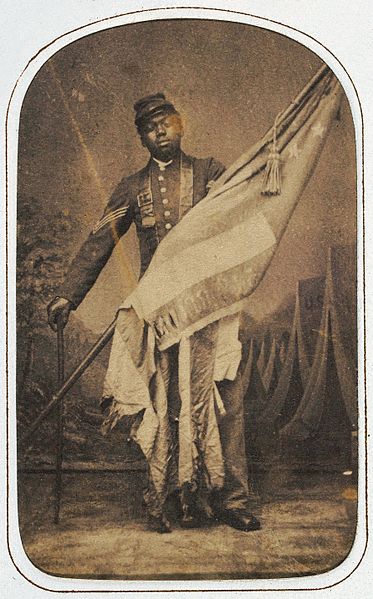
Reading the "Black Codes" passed by southern states during Reconstruction, placing freed people into conditions as close to slavery as they could make them
Sherman should've mowed the deep south like a lawn, making multiple passes
I hate institutional racism so goddam much
Sherman should've mowed the deep south like a lawn, making multiple passes
I hate institutional racism so goddam much
29 July, 1866 - New Orleans police (mostly ex-rebel troops) attacked a delegation of whites and blacks meeting to amend the LA state constitution. Police fired into the crowd, which took shelter in the convention hall. Police broke down the doors, firing into the mass, killing 38
Army declared martial law in the city, Sheridan concluded "it was no riot, it was an absolute massacre by the police" and compared it to Fort Pillow. When the city did nothing to investigate, Sheridan sacked the city leadership & forced the police to be 50% US Army vets
Sheridan acted so strongly and efficiently against the insurgents in Louisiana and Texas that President Johnson eventually had him removed - against Grant's protests
However, most of his subordinates were of like minds and kept up the work as best they could.
However, most of his subordinates were of like minds and kept up the work as best they could.
Of the generals running military districts, Dan Sickles and Phil Sheridan did very well countering the insurgency and fighting for civil rights for all
Winfield Scott Hancock, I'm afraid to say, did not.
Winfield Scott Hancock, I'm afraid to say, did not.
In reaction to military rule in the south, and the rising freedom of black Americans there as well as the ratification of state constitutions that abolished slavery & provided civil rights, paramilitary organizations sprung up across the south in 1868.
Their first goal was voter intimidation, riding in groups at night, harassing local freedpeople, causing BG Canby in NC to warn that conspiracies to obstruct the execution of federal law or to prevent voting would be severely punished.
The Klan also targeted politicians. They went after the Republican governor of TN, who in turn called up 1500 state troops and got Grant to commit the 29th US Infantry. By 1869, the paramilitary organization's depredations had ceased
By contrast, in LA, where the military commander BG Rousseau was friendly to Johnson, over 400 black and white people were murdered in a reign of terror from June to September, 1868 - violence only ended when the commander convinced black voters not to turn out
In NC, the governor called up 2 regiments of militia (1 white, 1 black) to fight the Klan, with US Army assistance. However, they couldn't prevent voter intimidation, leading to a KKK member being elected to the legislature. He then led the successful charge to impeach the gov.
More US troops were brought in to fight the Klan after 1870 and Grant's election, but there just weren't enough. Patrols of the 7th Cav rounded up hundreds of Klansmen but the insurgent leaders managed to slip out of state before the troopers arrived to arrest them
In 1873, the insurgent governor-elect of LA formed his own militia, put it under command of an ex-rebel, & sent it after the state arsenal - defended by police & state militia under James Longstreet, another ex-rebel, but now a Republican. Longstreet easily defeated the attack
However, paramilitaries across the south were emboldened by success in replacing Republican politicians with Democrats & by the lack of convictions in Klan trials. Violence exploded in 1873 in Grant Parish, LA, where over 60 black state militiamen were massacred by paramilitaries
Many groups abandoned the clandestine tactics of the KKK & formed paramilitary units & rifle clubs that paraded in broad daylight, like the White League in LA, the White Line in SC, and the Red Shirts in SC. New Orleans descended into street battles in 1874
Sheridan arrived to restore order, & requested military authority from Grant to treat the White League as bandits & traitors. But Congress would not provide Sheridan with the authority needed to put down the White League & the legitimate Republican governor of LA was ousted
By 1876, Red Shirts in SC had organized 13,000 insurgents to intimidate the black state militia - massacring dozens at Hamburg - and backed ex-rebel general Wade Hampton. Grant sent hundreds of federal troops to SC - Hampton ensured they were greeted with a cheering crowd
Hampton's shrewd move paid off - his contested gubernatorial election was one of 3 in the last Republican states - SC, FL, and LA. In exchange for the needed electoral votes from the south, Rutherford Hayes agreed to recognize the Democrat governors in those contested states
This so-called Compromise of 1876 marked the effective end of Reconstruction. While some federal troops remained, Hayes did not use them to halt voter intimidation, violence against blacks, or to protect civil rights
And that's how the Slavers won the Civil War.
And that's how the Slavers won the Civil War.
For more on the Army in Reconstruction, the Army Center of Military History has a very good free booklet on it: The US Army and Reconstruction, 1865-1877
• • •
Missing some Tweet in this thread? You can try to
force a refresh











